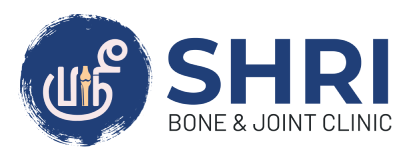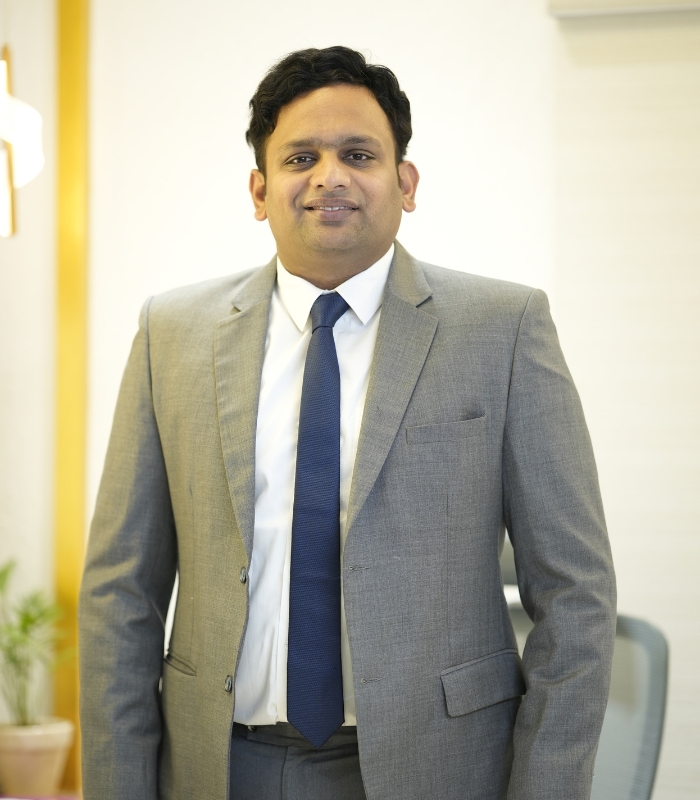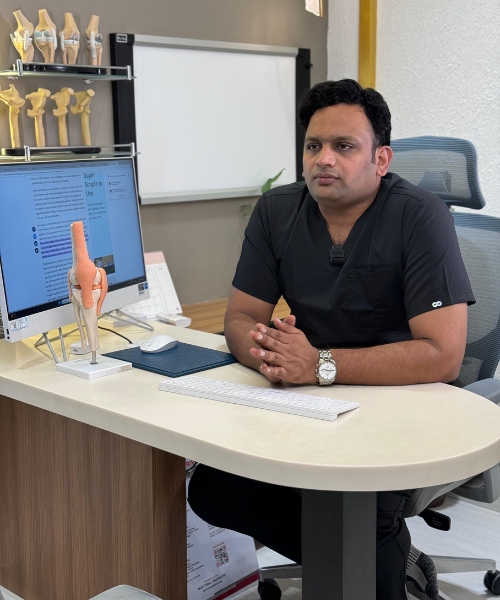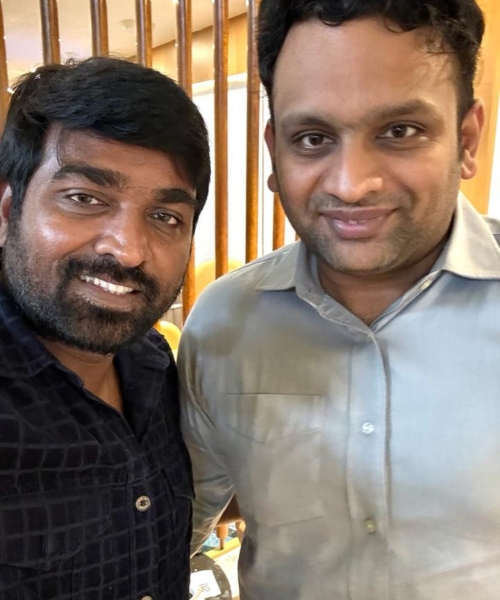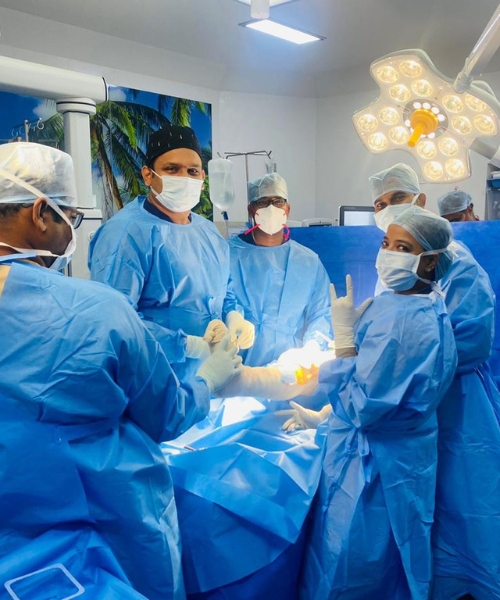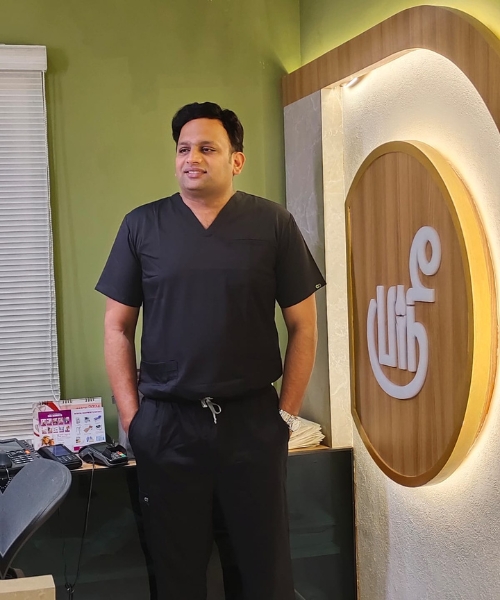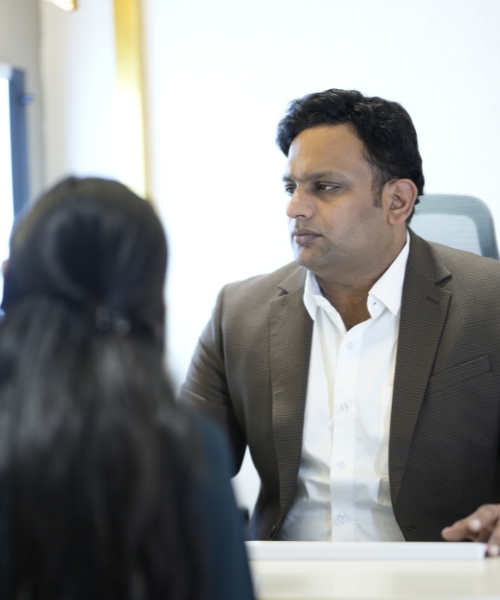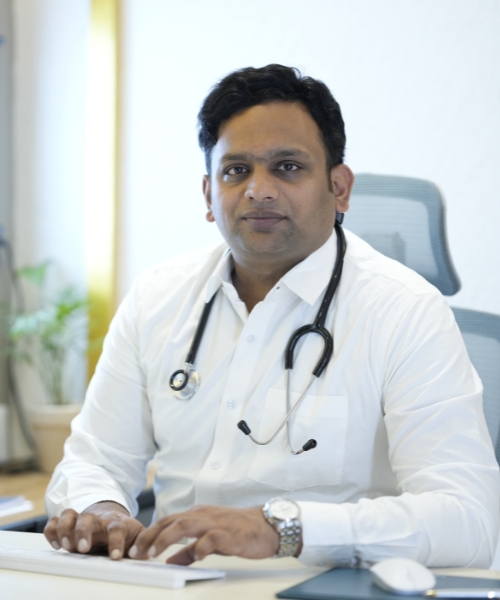What is the Achilles Tendon?
The Achilles tendon, the strongest and largest tendon in the human body, connects the calf muscles (gastrocnemius and soleus) to the heel bone (calcaneus). It enables essential movements such as walking, running, and jumping by allowing the foot to push off the ground.
This tendon plays a crucial role in plantarflexion, which is the action of pointing the toes downward. Despite its strength, the Achilles tendon is susceptible to injuries like tendinitis, tendinosis, and ruptures, often due to overuse or sudden physical activity. Proper care and rehabilitation are essential for maintaining its function and preventing injuries.
Common Types of Achilles Tendon Injuries
Achilles Tendinitis
Achilles tendinitis is the inflammation of the Achilles tendon, typically resulting from overuse or repetitive stress. Common among athletes and active individuals, it presents with symptoms like pain, stiffness, and swelling along the tendon, especially in the morning or after physical activity.
Contributing factors include sudden increases in exercise intensity, inadequate warm-up, and tight calf muscles. Treatment focuses on rest, ice application, anti-inflammatory medications, and physical therapy to stretch and strengthen the tendon. Proper footwear and orthotics can also help alleviate symptoms. If left untreated, Achilles tendinitis can lead to more severe tendon injuries or chronic pain.
Achilles tendinosis
Achilles tendinosis is a chronic condition characterized by the degeneration of the Achilles tendon due to repetitive stress and overuse, without inflammation. It often results from untreated Achilles tendinitis and manifests as pain, thickening, and stiffness in the tendon, especially during and after physical activity.
Unlike tendinitis, tendinosis involves microscopic tears and collagen degeneration, leading to reduced tendon strength. Treatment includes eccentric strengthening exercises, physical therapy, rest, and sometimes shockwave therapy. Proper management involves addressing biomechanical issues, using supportive footwear, and gradually increasing activity levels to prevent further tendon damage and promote healing.
Achilles Tendon Rupture
An Achilles tendon rupture is a severe injury where the tendon connecting the calf muscles to the heel bone partially or completely tears, often due to sudden force or trauma. Common in middle-aged athletes, it typically occurs during activities involving abrupt starts or stops. Symptoms include a sharp pain, a popping sound, and difficulty walking or pushing off the foot.
Diagnosis is confirmed through a physical exam and imaging tests. Treatment options include surgical repair or non-surgical immobilization in a cast or brace, followed by extensive physical therapy to restore strength and flexibility. Prompt treatment is crucial for optimal recovery.
Insertional Achilles Tendinitis
Insertional Achilles tendinitis is the inflammation of the Achilles tendon where it attaches to the heel bone. Common in both athletes and sedentary individuals, it often results from overuse, tight calf muscles, or repetitive stress. Symptoms include pain, swelling, and tenderness at the back of the heel, which may worsen with activity or pressure from footwear.
Treatment involves rest, ice, anti-inflammatory medications, and physical therapy to stretch and strengthen the tendon. Proper footwear and orthotics can help alleviate pressure on the tendon. In severe cases, surgical intervention may be necessary to remove damaged tissue and promote healing.
Retrocalcaneal Bursitis
Retrocalcaneal bursitis is the inflammation of the bursa, a small fluid-filled sac, located between the Achilles tendon and the heel bone. It is often caused by repetitive friction or pressure, leading to irritation and swelling. Common in athletes and individuals who engage in activities that involve repetitive heel movements, symptoms include pain, swelling, and tenderness at the back of the heel.
Treatment typically involves rest, ice, anti-inflammatory medications, and physical therapy to reduce inflammation and improve flexibility. Proper footwear and heel lifts may also be recommended to alleviate pressure on the bursa. In severe cases, aspiration or surgical removal of the bursa may be necessary.
Causes and Risk Factors
- Overuse
- Sudden Increase in activity
- Poor Foot Biomechanics
- Improper footwear
- Age
- Previous injury
- Certain Medications
- Gender
- Obesity
- Medical Conditions
Symptoms
Achilles Tendinitis
- Pain and stiffness along the Achilles tendon, especially in the morning or after activity.
- Swelling that may be present along the tendon.
- Warmth to the touch in the area of the tendon.
Achilles Tendinosis
- Thickening of the tendon.
- Pain and stiffness during and after activity.
- Reduced strength in the affected leg.
Achilles Tendon Rupture
- Sudden, sharp pain in the back of the ankle or calf.
- A popping or snapping sensation at the time of injury.
- Difficulty walking or rising on the toes.
Insertional Achilles Tendinitis
- Pain and tenderness at the back of the heel, where the tendon inserts into the bone.
- Swelling and warmth in the area.
Retrocalcaneal Bursitis
- Pain and swelling at the back of the heel, just above the insertion of the Achilles tendon.
- Difficulty wearin shoes that rub against the affected area.
Diagnosis
- Your healthcare provider will ask about your symptoms, including when they started, how they affect your daily activities, and any previous injuries or medical conditions that may be relevant.
- Your healthcare provider will examine the affected area, looking for signs of swelling, tenderness, and range of motion. They may also perform specific tests to assess the strength and flexibility of the Achilles tendon.
- Imaging tests such as ultrasound or magnetic resonance imaging (MRI) may be ordered to confirm the diagnosis and determine the extent of the injury. These tests can provide detailed images of the Achilles tendon and surrounding tissues, helping to identify tears, inflammation, or other abnormalities.
- In some cases, your healthcare provider may order additional tests such as X-rays to rule out other conditions or injuries, such as a bone spur or fracture, that may be contributing to your symptoms.
Treatment Options
Achilles tendonitis is an inflammation of the Achilles tendon, which connects your calf muscle to your heel bone. It is a common overuse injury that can cause pain and stiffness in the back of your heel, especially in the morning and after activity.
Surgical Treatments
There are two main types of surgical approaches for Achilles tendon repair:
- Open surgery: This is the traditional approach where the surgeon makes an incision along the back of your calf to access the Achilles tendon. The torn or degenerated tendon is then repaired with sutures and anchors. In some cases, the surgeon may need to use a tendon graft from another part of your body to reinforce the repair.
- Minimally invasive surgery:This is a newer approach that uses smaller incisions and special tools to repair the Achilles tendon. Minimally invasive surgery may have some advantages over open surgery, such as a quicker recovery time and less scarring. However, it may not be suitable for all types of Achilles tendon injuries.
General steps involved in Achilles tendon repair surgery:
- Anesthesia: You will be given general anesthesia or regional anesthesia to block pain during the surgery.
- Incision: The surgeon will make an incision in the back of your calf, either a traditional open incision or a series of smaller incisions for minimally invasive surgery.
- Repair of the tendon: The surgeon will repair the torn or degenerated tendon using sutures, anchors, or tendon grafts.
- Closing the incision: The surgeon will close the incision with stitches or staples.
- Immobilization: Your ankle and foot will be immobilized in a cast or splint for several weeks to allow the tendon to heal.
Non-Surgical Treatments
- RICE:This stands for Rest, Ice, Compression, and Elevation. Rest is essential to allow the tendon to heal. Ice can help reduce inflammation and pain. Compression can help reduce swelling. Elevation helps reduce swelling by promoting drainage of fluids away from the inflamed area.
- Pain relievers: Over-the-counter pain relievers, such as ibuprofen or naproxen, can help reduce pain and inflammation.
Physical therapy: A physical therapist can design a program of exercises to help you stretch and strengthen the muscles around your ankle and calf. These exercises can improve flexibility and range of motion in your ankle and reduce your risk of future injury. - Immobilization: In some cases, your doctor may recommend immobilizing your ankle in a walking boot or cast for a short period of time to allow the tendon to heal.
Orthotics: Custom orthotics can help improve your arch support and reduce stress on your Achilles tendon.

Rehabilitation and Recovery
Rehabilitation and recovery from an Achilles tendon injury involve a phased approach. Initially, rest, immobilization, and pain management are crucial. Early rehabilitation focuses on gentle range of motion and isometric exercises. Intermediate phases introduce strengthening, balance, and low-impact cardiovascular activities.
Advanced stages involve progressive loading, sport-specific training, and plyometrics. Gradual return to full activity occurs over 9-12 months, emphasizing ongoing strength, flexibility, proper footwear, and gradual activity increases to prevent re-injury. Close supervision by a healthcare professional ensures a safe and effective recovery.
Why Choose Shri Bone & Joint Clinic for Achilles Tendonitis Treatment in Chennai, India?
Choosing Shri Bone & Joint Clinic for Achilles tendonitis treatment in Chennai, India offers multiple benefits. The clinic is staffed with experienced orthopedic specialists and surgeons proficient in diagnosing and treating tendon injuries. We provide a comprehensive range of treatment options, from conservative methods like physical therapy, orthotics, and medications to advanced surgical interventions when necessary.
The clinic emphasizes personalized care, tailoring rehabilitation programs to restore function, strength, and mobility, guided by skilled physiotherapists. Our holistic approach includes nutrition and lifestyle advice to support overall well-being. We have the best Orthopedic Specialist in Chennai, India.
Located conveniently in Chennai, India Shri Bone & Joint Clinic is accessible to both local residents and those from neighboring areas. The facility is equipped with modern medical technology and amenities, ensuring patient comfort and optimal care. With a proven track record of successful treatments and positive patient testimonials, the clinic is dedicated to delivering high-quality, patient-focused care for effective recovery from Achilles tendonitis.
Best Doctor for Achilles Tendon Repair in Chennai, India
One of the best doctors for Achilles tendon repair at Shri Bone & Joint Clinic in Chennai, India is Dr.Shriram Krishnamoorthy. He is a highly experienced orthopedic surgeon specializing in sports injuries and tendon repairs.
With his extensive expertise and patient-centered approach, Dr. Shriram Krishnamoorthy is well-regarded for his successful outcomes in treating Achilles tendon injuries. His commitment to personalized care and use of advanced surgical techniques ensures effective recovery and long-term health for his patients. Get an best and quality Ankle Pain and Heel Pain Treatment Chennai .
Cost of Achilles Tendonitis Surgery in Chennai, India
The cost of Achilles tendonitis surgery in Chennai, India, can vary depending on several factors such as the hospital, the surgeon’s experience, the complexity of the surgery, and the type of facility. On average, the cost can range from ₹1,50,000 to ₹3,00,000 (approximately $2,000 to $4,000 USD). get the best Achilles Tendonitis Surgery at an affordable price from Shri Bone & Joint Clinic in Chennai, India.
What is the fastest way to heal an Achilles tendon?
Rest, ice, compression, elevation (RICE), physical therapy, stretching exercises, and avoiding intense activities can accelerate Achilles tendon healing.
How much does Achilles tendon surgery cost in Chennai,India?
Achilles tendon surgery in Chennai costs between ₹1,50,000 to ₹3,00,000, depending on the hospital, surgeon, and complexity.
Is Achilles tendon curable?
Yes, Achilles tendon injuries are curable with rest, physical therapy, and, in severe cases, surgery, leading to full recovery.
Can Achilles heal naturally?
Yes, Achilles tendon injuries can heal naturally with rest, ice, compression, elevation (RICE), and physical therapy over time.
Is walking good for the Achilles tendon?
Walking can be beneficial for Achilles tendon recovery, but it should be moderate and pain-free to avoid aggravating the injury.
How long does Achilles take to heal?
Achilles tendon injuries typically take 6-12 weeks to heal with proper treatment, but severe cases may require up to 6 months.
Is heat or ice better for Achilles tendonitis?
Ice is better initially for Achilles tendonitis to reduce inflammation and pain; heat can be used later to relax muscles.
Does Achilles tendonitis go away?
Yes, Achilles tendonitis can go away with proper treatment, including rest, physical therapy, and lifestyle modifications to prevent recurrence.
What worsens Achilles tendonitis?
Achilles tendonitis worsens with overuse, inadequate footwear, tight calf muscles, high-impact activities, and sudden increases in exercise intensity.
What is the best exercise for Achilles tendonitis?
Eccentric calf raises are effective for Achilles tendonitis, strengthening the tendon and improving its ability to handle load.
Better Health Care is Our Mission
Phone
Shri Bone & Joint clinic
#1, 2nd Main Road
Nehru Nagar
Adyar
Chennai - 20.
Phone: 044 3549 0206
MGM Healthcare
No.72,
Nelson Manickam Road,
Collectorate Colony, Aminjikarai,
Chennai - 600029.
Phone: 044 4524 2424
